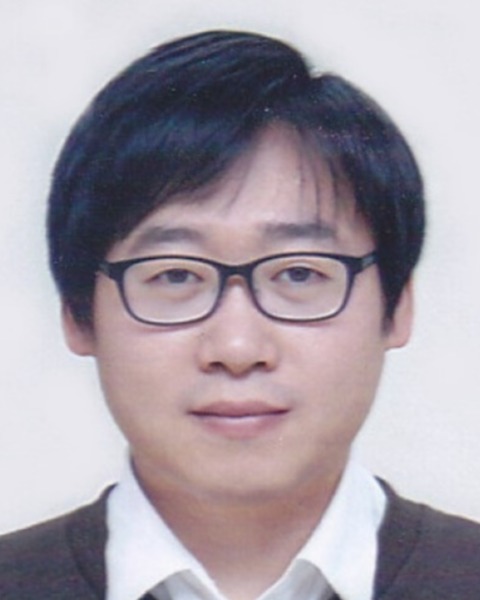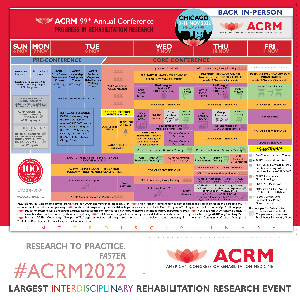Back
Aging Research & Geriatric Rehabilitation
Estimation of Functional Reserve in Patients with Hospital-associated Deconditioning
Wednesday, November 9, 2022
12:23 PM – 12:28 PM
Location: Station 1

Nackhwan Kim, MD, PhD
Research Professor
Korea University Research Institute for Medical Bigdata Science, Korea University Medical Center
Seoul, Republic of Korea
Presenting Author(s)
Research Objectives: This preliminary study aimed to analyze the applicability of sit-to-stand (STS) muscle power tests for evaluating functional reserve in patients with hospital-associated deconditioning (HAD).
Design: Prospective, observational study
Setting: One tertiary hospital in Ansan-si, South Korea
Participants: Eighteen patients with HAD participated in this preliminary study.
Interventions: STS tests were performed in early stages of comprehensive rehabilitation treatment, and the interval changes in clinical indicators were assessed after four weeks of clinical observation.
Main Outcome Measures: A ratio capacity were estimated by the time duration of five STS repetitions (5r-STS) and the maximum number of STS repetitions over 30 second (30s-STS); activities were measured using a three-dimension motion capture system and force plate. The results were analyzed to correlate with clinical indicators including a 4-week follow-up data.
Results: After 4 weeks of comprehensive rehabilitation, the 10 m gait speed, hand grip power, hip extensor power, Berg balance scale, and modified Barthel index (MBI) were significantly improved. The FPD 30s-STS power and the number of repeats in FPD 30s-STS showed a positive correlation with improvements in the hand grip power, and hip extensor power and MAI respectively. The ratio STS capacity was correlated with higher improvements in the 10 m gait speed, hip extensor power, and MBI. However, the FPD 5r-STS power was not statistically correlated with any clinical outcomes. Despite individual variability in the differences between the FPD and estimated STS power, the results for correlation between the ratio STS capacity and clinical outcomes were consistence.
Conclusions: The ratio STS capacity showed positive correlation with clinical outcomes including gait speed, which is a standardized value of the difference in the power required for the same activities with different rules, and may reflect a part of the functional reserve excluding individual variability of performance.
Author(s) Disclosures: This work was supported by the KMDF grant funded by the Korea government (Project Number: 1711138408, RS-2020-KD000189)
Design: Prospective, observational study
Setting: One tertiary hospital in Ansan-si, South Korea
Participants: Eighteen patients with HAD participated in this preliminary study.
Interventions: STS tests were performed in early stages of comprehensive rehabilitation treatment, and the interval changes in clinical indicators were assessed after four weeks of clinical observation.
Main Outcome Measures: A ratio capacity were estimated by the time duration of five STS repetitions (5r-STS) and the maximum number of STS repetitions over 30 second (30s-STS); activities were measured using a three-dimension motion capture system and force plate. The results were analyzed to correlate with clinical indicators including a 4-week follow-up data.
Results: After 4 weeks of comprehensive rehabilitation, the 10 m gait speed, hand grip power, hip extensor power, Berg balance scale, and modified Barthel index (MBI) were significantly improved. The FPD 30s-STS power and the number of repeats in FPD 30s-STS showed a positive correlation with improvements in the hand grip power, and hip extensor power and MAI respectively. The ratio STS capacity was correlated with higher improvements in the 10 m gait speed, hip extensor power, and MBI. However, the FPD 5r-STS power was not statistically correlated with any clinical outcomes. Despite individual variability in the differences between the FPD and estimated STS power, the results for correlation between the ratio STS capacity and clinical outcomes were consistence.
Conclusions: The ratio STS capacity showed positive correlation with clinical outcomes including gait speed, which is a standardized value of the difference in the power required for the same activities with different rules, and may reflect a part of the functional reserve excluding individual variability of performance.
Author(s) Disclosures: This work was supported by the KMDF grant funded by the Korea government (Project Number: 1711138408, RS-2020-KD000189)
Learning Objectives:
- Upon completion, participant will be able to assess the functional reserve proposed as a diagnostic concept of hospital-associated deconditioning, the correlation with clinical indicators was analyzed using two sit-to-stand tests.
- Upon completion, participant will be able to demonstrate that the gap between the 30s-STS and 5r-STS can reflect the functional reserve of patients with hospital-associated deconditioning.
- Upon completion, participant will be able to recognise that the ratio STS power is a useful clinical evaluation tool for reflecting and predicting the functional reserve under hospital-associated deconditioning.

.jpg)
